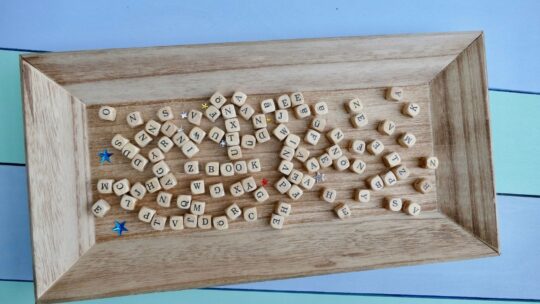
With sweaty palms and a racing pulse, you sit and wait while pondering your upcoming move. Using the right characters that spell success, a game-winning strike could be as near as the alphabet tiles on your rack. Your competitor is prepared to hit up the thesaurus and challenge your word choices while you battle to keep your game face intact.
You will have to master your tiles while also comprehending the entire board. Maximizing the tile worth via premium positioning, stopping the adversary’s defensive moves, and passing up apparent turns to achieve a high score are just some of the amazing strategies for efficiently playing word games. Gain insight with our top six strategies to play word games that might just turn you into a winner.
Swap
Like many other players, you must undoubtedly be apprehensive about the swap, owing to it being a bold move where you could also possibly lose the chance to make a word. The advantage, however, overweighs the risk. It could be very beneficial if you are trapped with a rack of tiles that is not taking you anywhere.
The trick is to understand when to switch. Swapping tiles helps break up units of the same character or trading low-scoring tiles for high-scoring ones.
Small Moves can Make a Difference
One plus one may not always equate to two in word games, primarily if you use techniques that involve creating words that complement each other. Study the phrases already written on the board and see if you can develop new words that cross paths with existing words on several occasions. You will get scores for every new word, including each two-letter term you make, by putting letters together.
Using two-letter terms after your adversary introduces a double- or triple-score gap is also good. You will not only increase your scoring, but you will also prevent your competitor from constructing there.
Make the First Move and Take Control
You acquire control of the board once you make your first move. By uncovering or concealing premium spots, you will set the standard with the possibilities you offer or prevent. To prevent giving your rival a double-word score, shoot a five-letter word right in the middle of the board.
Alternatively, you can place a high-scoring piece on a double-letter spot by yourself. Furthermore, on occasion, simply playing a phrase vertically rather than horizontally can confuse your rivals. Whatever decision you make will build confidence in you that you will carry with you during the game.
Seven-letter Word Bingo
Even if you did not do well in school with spelling words, you could still win word games. Taking a few clever steps and understanding some 7-letter words are all that are required.
Seven-letter words will use all tiles in your rack and earn you bonus points. You can ignite your bingo ambitions by studying the dictionary and paying specific attention to seven-letter words beginning with Qs, Js, and Zs.
Recognize the Board’s Opening and Closing
Learn to optimize the board’s ability and thwart your opponent if you want to step up your word game talents. Start by learning to open and close the board at the appropriate moments.

Use this strategy to give your opponent a hard time making high-scoring moves. Remember all the small words you studied and play fresh ones parallel to the existing words on the board.
Minimize the Racks
It is time to implement end-game tactics as your word game winds down. While you will keep drawing new tiles and adapting to your opposition’s actions, you will also have to spend some time analyzing the odds before taking your next step to lower the number of high-scoring tiles in your rack.
First, it is critical to comprehend why this is significant. At the end of the match, if you have any leftover tiles, you must subtract the aggregate of such tiles from your total. If you have an empty rack, though, you can add the amount of your adversary’s leftover tiles to your scoring.

How you manage your rack elimination final approach may dictate the fate of a tight match. Maintain an eye on your rival’s rack.
You will want to track how many tiles are left and figure out what words they might represent depending on what was already played. To some, it is a controversial activity related to card counting, but it is a frequent occurrence at events and competitive organizations.
Wrapping Up
It is time to discuss strategy if your word game sessions have turned into an obsession with lexical items and obscure regulations. Word games are seen as a statistically fueled contest of wits teeming with mathematical probability by successful players, who perceive it as more than just a word game. By following the strategies mentioned in this article, we can assure you of efficient and smooth gameplay that could guarantee your victory.























